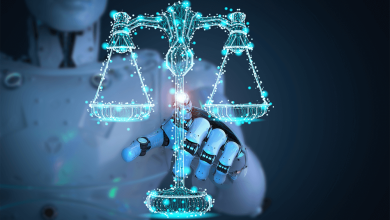Online Defamation: What You Need to Know

INTRODUCTION
Online defamation is a serious and growing threat in the digital age. As more of our lives move online, the risk of being targeted by false and damaging statements increases for individuals, professionals, and businesses alike. The internet’s global reach means that a single defamatory post can spread rapidly, reaching thousands or even millions of people within minutes. Unlike traditional defamation, which might be limited to a local community or a printed publication, online defamation can have a far wider and more lasting impact.
The rise of social media platforms, blogs, forums, and review sites has made it easier than ever for anyone to publish content about others—sometimes without any verification or accountability. This ease of publication, combined with the potential for anonymity, emboldens some users to make reckless or malicious statements that can ruin reputations, careers, and even personal relationships. For businesses, a single fake review or viral falsehood can result in lost customers, financial harm, and long-term damage to brand trust.

Victims of online defamation often experience not only reputational harm but also emotional distress, anxiety, and a sense of helplessness. The permanence of online content means that even after false statements are removed, traces may linger in search results or archives, continuing to cause harm. Understanding your rights and the steps you can take to protect yourself is more important than ever in this digital era.
Understanding the Basics
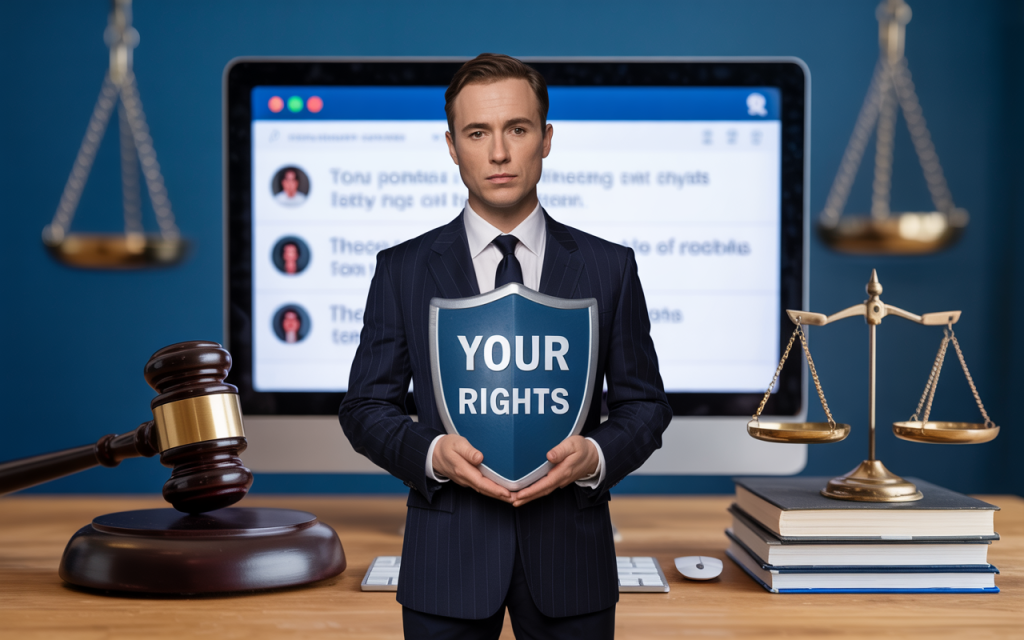
What Is Online Defamation?
Online defamation means publishing false information about someone on the internet. There are several types:
- Libel: Written or published defamatory statements (e.g., posts, articles, reviews).
- Slander: Spoken defamatory statements (e.g., in videos, podcasts).
- Cyberbullying: Repeated, intentional harassment or intimidation online.
- Online harassment: Broader term for various forms of online abuse.
Key Elements of Online Defamation
To prove online defamation, the following must be shown:
- A false statement was made about the plaintiff.
- The statement was published or communicated to a third party online.
- The statement caused harm to the plaintiff’s reputation.
- The defendant was negligent or reckless in making the statement.
Common Examples
- False criminal accusations: Falsely claiming someone committed a crime.
- Fake reviews: Posting negative reviews about a business without ever using their services.
- Defamatory social media posts: Spreading lies about someone’s personal or professional life.
- Malicious blog content: Publishing misinformation to damage someone’s image.
- Impersonation accounts: Creating fake profiles to post harmful content.
- Manipulated images or videos: Sharing edited media to mislead others.
- Defamatory memes: Using humor or satire to spread falsehoods.
- Doxing: Publishing private information with malicious intent.
Know Your Rights
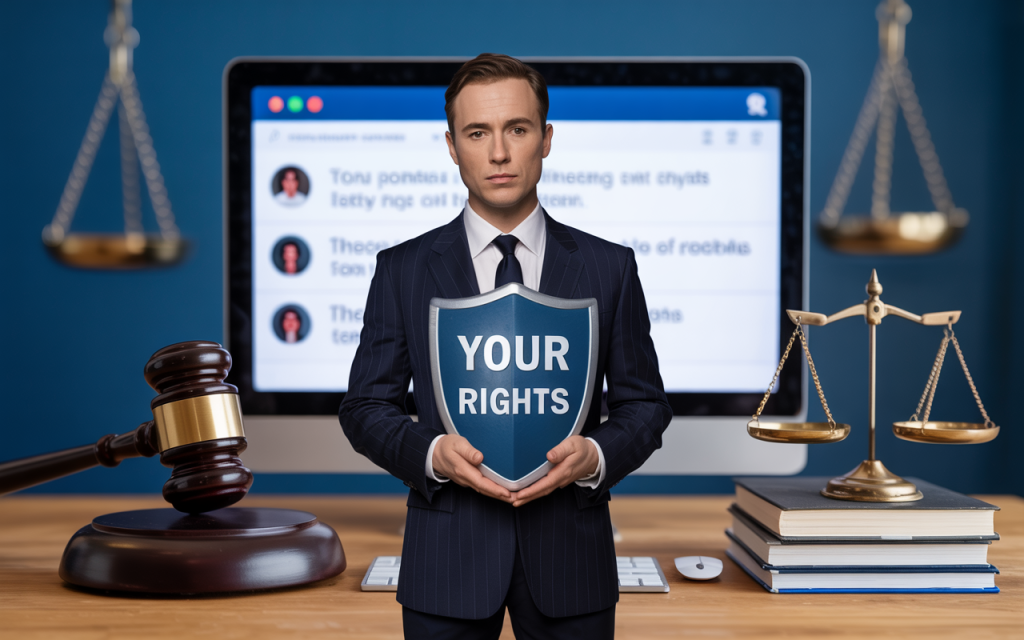
Your Legal Rights
If you are a victim of online defamation, you have the right to:
- Request removal of the false content.
- Report the content to the website or social media platform.
- Collect evidence, such as screenshots, links, and timestamps.
- Seek legal advice or file a lawsuit for damages.
- Request a court order (injunction) to stop further defamation.
- Demand an apology or retraction.
Defenses Against Online Defamation
Not every negative statement is defamation. Common defenses include:
- Truth: If the statement is true, it is not defamation.
- Honest opinion: Clearly presented opinions, not facts, may be protected.
- Privilege: Statements made in certain contexts (e.g., court testimony) are protected.
- Public interest: Statements made for the public good may be protected.
Legal Consequences
- Civil lawsuits: Victims can sue for damages to reputation, emotional distress, and financial loss.
- Criminal charges: In some countries, online defamation is a crime and can lead to fines or imprisonment.
- Court orders: Courts can order the removal of defamatory content and issue injunctions.
- International differences: Laws vary by country. For example, the U.S. protects free speech more strongly, while the U.K. is more claimant-friendly. Some countries treat defamation as a criminal offense, others as a civil matter.
Impact on Mental Health

Online defamation can have severe effects on mental health, including:
- Anxiety and depression.
- Loss of self-esteem and confidence.
- Social withdrawal and isolation.
- Sleep disturbances and stress-related health issues.
- In severe cases, victims may need professional mental health support.
Online Defamation: Impact on Businesses
- Loss of customer trust: Negative reviews and false claims can drive customers away.
- Financial loss: Damaged reputation can lead to lost sales and increased legal costs.
- Employee morale: Staff may feel demoralized if the business is under attack.
- Long-term harm: Persistent defamation can affect partnerships and market position.
- Search engine visibility: Harmful content can lower search rankings, reducing online visibility and sales.
Real-Life Case Studies
| Case Type | Description | Outcome/Impact |
|---|---|---|
| Gossip Website Libel | Cheerleader sued a gossip site for false posts about her personal life | Initial damages awarded, later overturned due to platform immunity |
| Revenge Defamation | Teacher targeted by ex-partner with false accusations online | Court ordered damages and search engine blocks; enforcement varied by country |
| Social Media Attacks | Public figures/businesses defamed on YouTube, Instagram, etc. | Courts awarded large settlements, issued injunctions |
| Fake Reviews | Restaurant received false reviews claiming food poisoning | Significant financial loss, legal action taken |
| Impersonation Accounts | Fake profiles used to post harmful content | Legal action to unmask and stop perpetrators |
| Defamatory Videos | YouTube video falsely accused officials of corruption | Court awarded aggravated damages due to malicious intent |
Prevention Tips
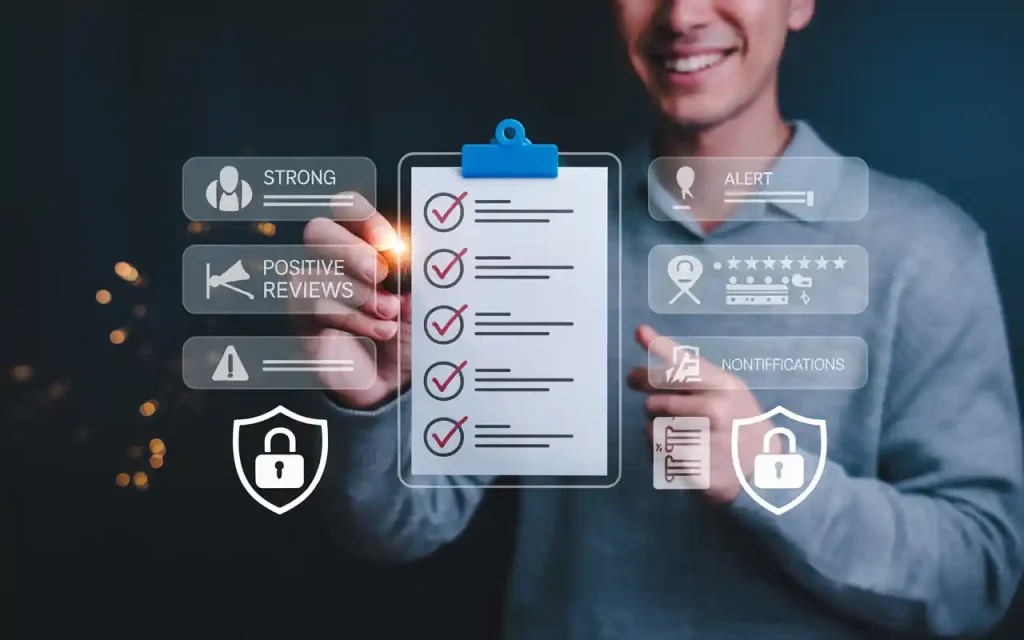
- Monitor your online presence: Use alerts and tools to track mentions of your name or business.
- Build a positive reputation: Share positive content and encourage satisfied customers to leave reviews.
- Strengthen digital security: Use strong passwords and two-factor authentication to prevent impersonation.
- Educate yourself and your team: Know your rights and train staff on online etiquette and crisis management.
- Develop a crisis plan: Have a plan for responding quickly to defamation or negative publicity.
- Establish social media guidelines: Set clear rules for employees about online conduct.
- Verify information before sharing: Ensure accuracy to avoid spreading falsehoods.
Steps to Protect Yourself
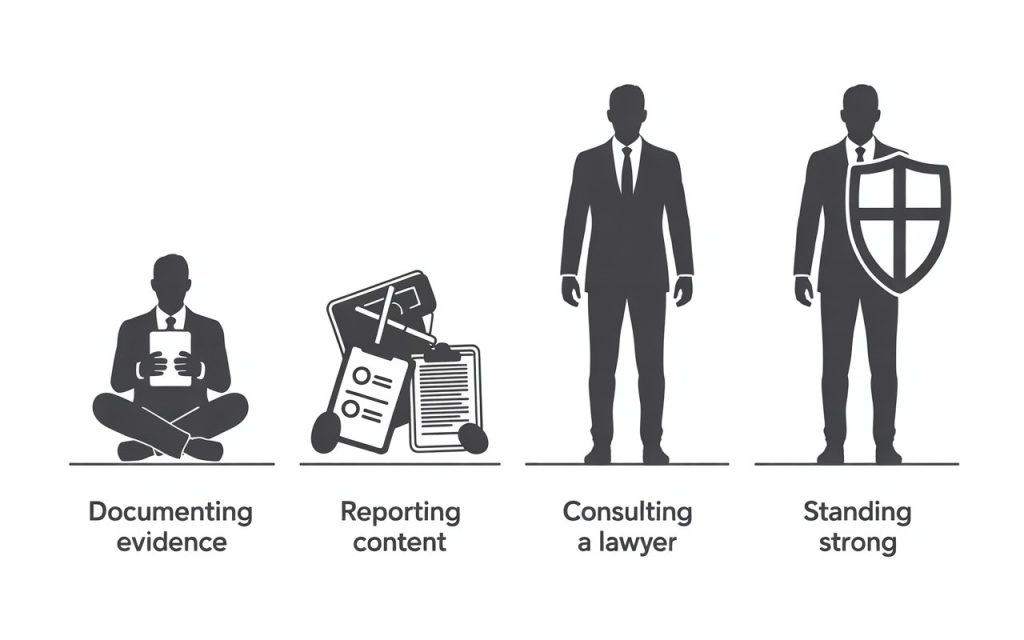
- Stay calm: Do not respond with anger.
- Document everything: Save copies of the false statements, including screenshots, URLs, and timestamps.
- Report the content: Use the platform’s reporting tools.
- Contact the poster: Politely ask for removal.
- Send a cease and desist letter: Formally request the defamation stop.
- Seek legal help: Consult a lawyer if the problem continues.
- Preserve all evidence: Before it is deleted or altered.
- Avoid public arguments: Responding publicly may escalate the situation.
International Law Differences
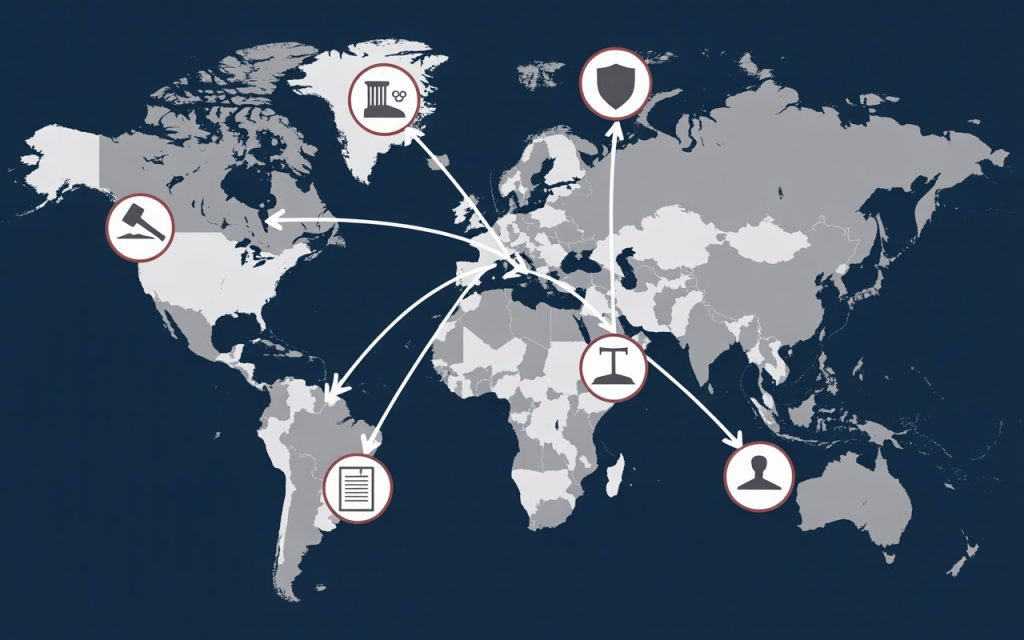
- Jurisdiction issues: Defamation laws differ by country, making cross-border cases complex. Courts may apply local laws or the law where the harm occurred.
- Platform liability: Some countries hold websites responsible for user content, others do not.
- Remedies: Available remedies (damages, injunctions) and the burden of proof vary widely.
- Section 230 (U.S.): Shields platforms from liability for user-generated content, with some exceptions.
- Defamation Act 2013 (U.K.): Modernized defamation laws and introduced new defenses.
Prevention and Response Strategies
| Strategy | Description | Example/Action Step |
|---|---|---|
| Monitor online presence | Regularly search for mentions of your name, brand, or business online | Set up Google Alerts, use reputation management tools |
| Implement social media policy | Establish guidelines for social media use and content creation | Employee handbook, training sessions |
| Verify information before sharing | Ensure that information is accurate and trustworthy before sharing online | Fact-check before posting |
| Use disclaimers and disclosures | Clearly label opinions, sponsored content, or other potentially misleading information | “In my opinion…”; #ad for sponsored posts |
| Build positive online content | Publish high-quality, positive content about yourself or your brand | Blog posts, testimonials, case studies |
| Encourage positive reviews | Ask satisfied customers to leave reviews to counteract negative or fake ones | Follow-up emails, review requests |
| Strengthen account security | Use strong passwords and two-factor authentication | Update passwords regularly, enable 2FA |
| Respond professionally | If defamatory content arises, respond with verifiable facts, not arguments | Issue a calm, factual statement |
| Seek legal advice | Consult a lawyer specializing in defamation law | Schedule a legal consultation |
| Use reporting mechanisms | Report defamatory content to platforms for removal | Use “Report” or “Flag” features |
| Crisis management plan | Prepare a plan for responding to online reputation threats | Draft response templates, assign roles |
| Online reputation management | Use ORM services to suppress defamatory content and restore search rankings | Hire ORM professionals |
Quotes from the Article
- “Online defamation is a serious and growing threat in the digital age.”
- “The internet’s global reach means that a single defamatory post can spread rapidly, reaching thousands or even millions of people within minutes.”
- “Unlike traditional defamation, which might be limited to a local community or a printed publication, online defamation can have a far wider and more lasting impact.”
- “The rise of social media platforms, blogs, forums, and review sites has made it easier than ever for anyone to publish content about others—sometimes without any verification or accountability.”
- “Victims of online defamation often experience not only reputational harm but also emotional distress, anxiety, and a sense of helplessness.”
- “The permanence of online content means that even after false statements are removed, traces may linger in search results or archives, continuing to cause harm.”
- “Understanding your rights and the steps you can take to protect yourself is more important than ever in this digital era.”
- “Stay calm, document everything, report the content to the platform, and seek legal advice if necessary. Avoid responding in anger or escalating the situation.”
Highlighted Tips
- Tip: Monitor your online presence regularly to catch defamatory content early.
- Tip: Collect and preserve evidence such as screenshots, URLs, and timestamps immediately.
- Tip: Use the reporting tools provided by social media platforms or websites to request removal of defamatory content.
- Tip: Avoid responding to defamatory posts with anger to prevent escalation.
- Tip: Consult a qualified lawyer promptly to understand your legal options and rights.
- Tip: Establish strong digital security measures like two-factor authentication to prevent impersonation.
- Tip: Encourage satisfied customers or contacts to leave positive reviews to counterbalance false claims.
- Tip: Develop a crisis management plan to respond swiftly and effectively to online defamation
Frequently Asked Questions

Can I sue for online defamation?
Yes, if you can prove the statement is false, was published, caused harm, and was made with fault. Remedies include damages and court orders. Anonymous posters can be unmasked through legal processes.
Is opinion considered online defamation?
No, pure opinions are not defamation. Only false statements of fact can be defamatory. Honest opinions and satire are generally protected.
What if the person is anonymous?
You may still be able to take legal action. Courts can order websites to reveal the identity of anonymous posters in some cases, using subpoenas and discovery motions.
How can I prove online defamation?
- Collect evidence: screenshots, URLs, timestamps, and metadata.
- Show the statement was published to others, was false, and caused harm.
- Demonstrate negligence or actual malice by the defendant.
What are the time limits for taking action?
Statutes of limitations vary by country and state. Act promptly to preserve your rights and evidence.
Conclusion
Online defamation is a complex and evolving issue that can affect anyone. It can harm your reputation, mental health, and business. Knowing your rights, understanding the law, and taking proactive steps are the best ways to protect yourself. If you are a victim, act kly, gather evidence, and seek professional help to restore your reputation and well-being.


